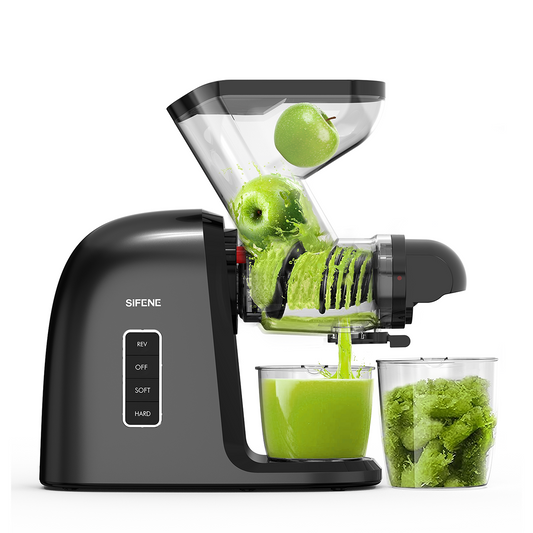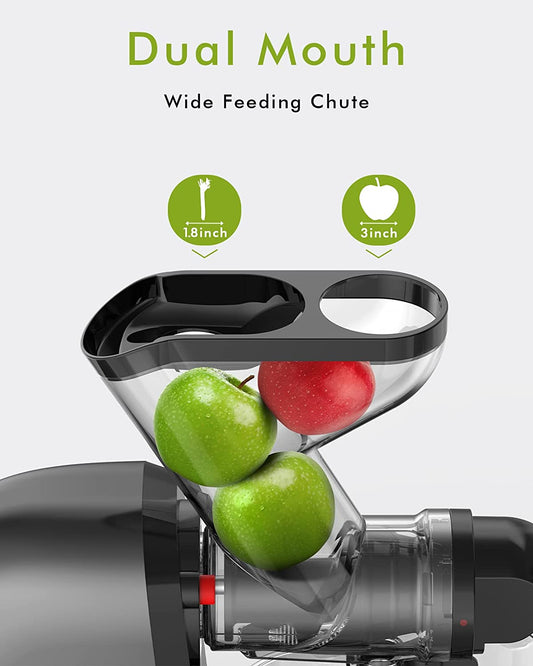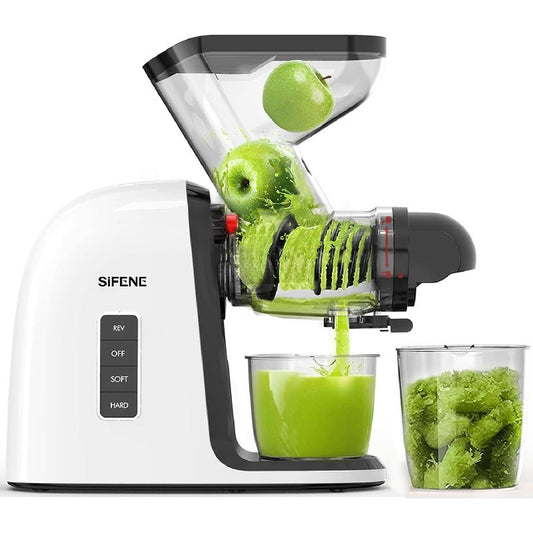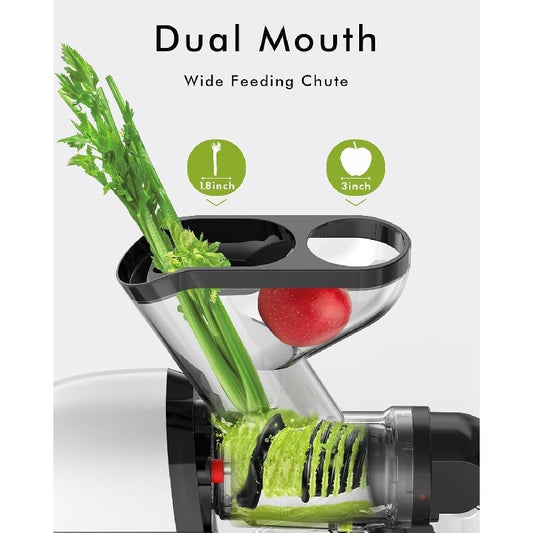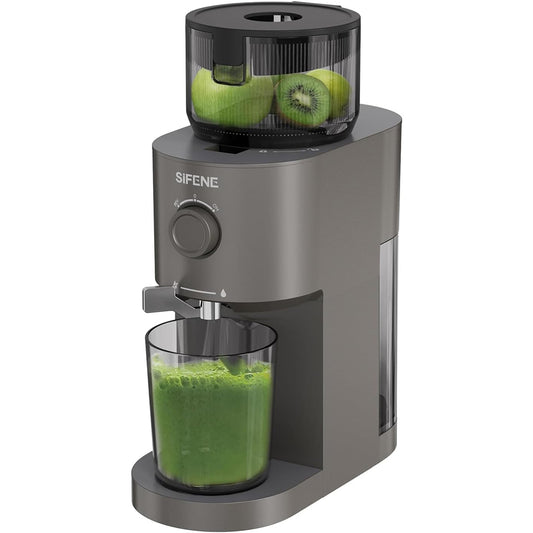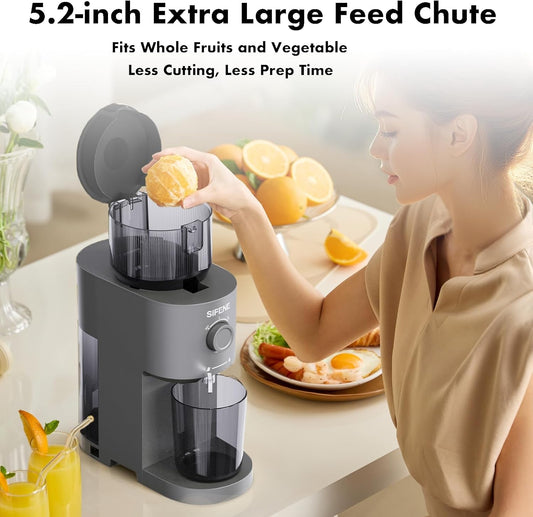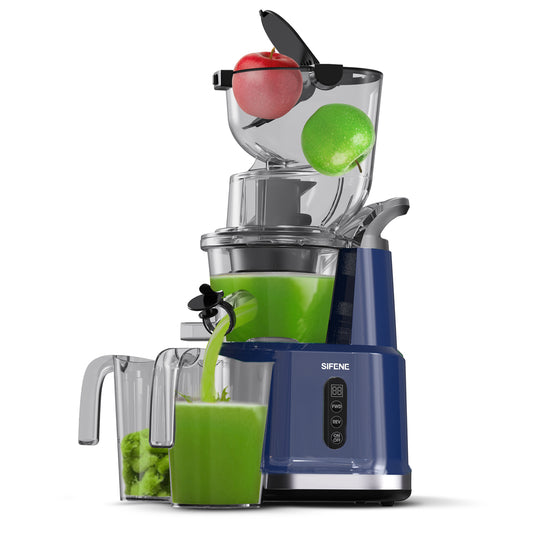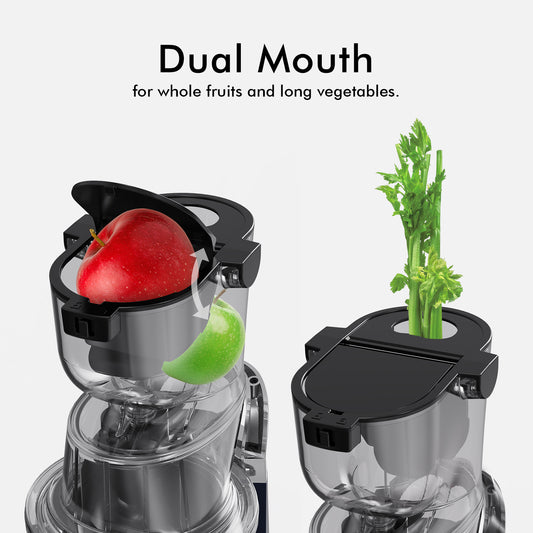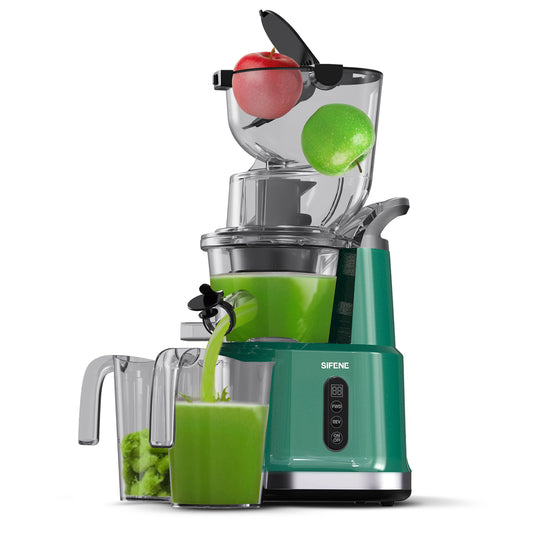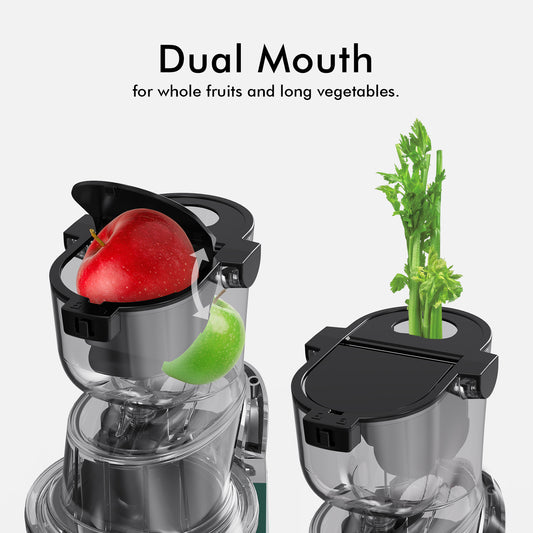The most popular home juicer due to its cheap price, centrifugal juicers shred fruits and vegetables at 6,000-14,000 rotations per minute (RPM). No wonder they’re also known as fast juicers.
Produce is fed through a tube until it makes direct contact with the fast-spinning blade. The resulting juice is thrown at high speed towards the sides of the machine by the centrifugal force of a spinning basket. From there, it’s pushed through a sharp screen into a jug or glass.
The cheap price and speedy juicing process comes with downsides. The juice from centrifugal juicers tends to separate and break down quickly. And since the produce is essentially being chopped up at super-speed, centrifugal-made juice includes up to 30% solid produce matter (skins, seeds, insoluble fiber, and stems).
Centrifugal juicers work by using a cutting disc, which is effectively a disc-shaped grater, to tear and shred ingredients in order to release the juice stored inside them.
The released juice is then pulled by centrifugal force to the edge of the disc, which is surrounded by a fine mesh wrap. The mesh then separates the juice from any remaining pulp as it passes through.
The filtered juice then trickles down below the cutting disc and is funnelled out of the juicer through a spout into a receptacle of your choice.
Overall, this method of juicing proves to be ideal in some ways. It can be replicated cheaply and in practice it’s easy to use, making centrifugal juicers more accessible for beginners.
However, on the flip side, the juice they extract isn’t of particularly good quality and their fast operation speeds and frequently cheap production do lead to reliability issues.
Although some models are less susceptible to a few of these problems than others. Namely, those produced to a higher standard by brands such as Breveille, Hamilton Beach and Sifene.
A centrifugal juicer, also known as a fast juicer, is the most popular type of home juicer. The biggest selling point is the fact that they are a cheap juicer to buy.
Pros
They are fastest at extracting juice from fruits and vegetables, especially if you have one with a tube that is wide enough to take on whole small apples, cucumbers, or oranges
They stand upright so they take up minimal space on your kitchen counter
They tend to be the least expensive juicers since they are cheap to make
Cons
The speed of rotation causes heat that degrades the quality of juice produced
More oxidation takes place, creating a foam on top of the fresh juice and causing it to separate quickly
They can be quite noisy
They don’t handle leafy greens or wheatgrass very well
The juice won’t stay fresh for very long, separating in a matter of minutes
Juice contains a high amount of solids or “pulp” and indigestible fiber
Nuts and seeds are not recommended to be juiced in this type of juicer, so making nut milk on a centrifugal juicer is a no-go
This juicer is best for people on a budget who don’t need large batches of juice and want to drink their juice as soon as it is made. It’s also for people who want to juice for the nutritional benefits but want to do it with as little effort as possible. They’re also cheaper than other options out there, making them great for beginners.
Featured collection
-
Dual Mouth Masticating Juicer Max Gray
Regular price $129.99 USDRegular priceUnit price per$99.99 USDSale price $129.99 USD -
Dual Mouth Masticating Juicer Max White
Regular price $129.99 USDRegular priceUnit price per$99.99 USDSale price $129.99 USD -
Whole Fruit Cold Press Juicer Large Feed Chute Gray
Regular price $129.99 USDRegular priceUnit price per$149.99 USDSale price $129.99 USDSale -
Whole Fruit Cold Press Juicer Large Dual Mouth Blue
Regular price $129.99 USDRegular priceUnit price per$199.99 USDSale price $129.99 USDSale -
Whole Fruit Cold Press Juicer Large Dual Mouth Green
Regular price $129.99 USDRegular priceUnit price per$199.99 USDSale price $129.99 USDSale

